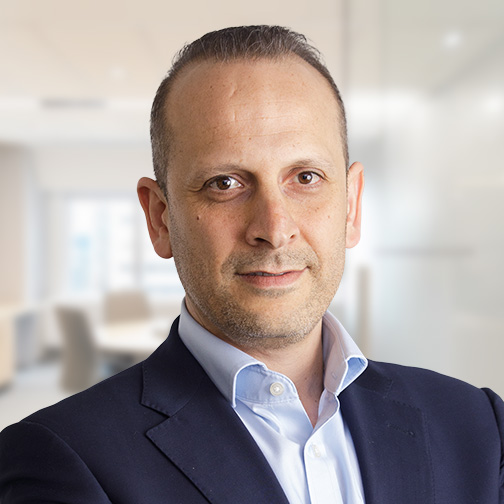Commentary
FEM Q3 2023 Manager Letter
November 23, 2023

The strategy focuses on investing in frontier and emerging market companies that our team expects will benefit from demographic trends, changing consumer behaviour, policy and regulatory reform, and technological advancement.
Below, we discuss some of the key factors influencing returns and share observations on the portfolio and the markets.
Information Technology
The strategy saw strong returns from the technology portfolio in the quarter. A significant contributor was Vietnam’s FPT Software (FPT), which featured prominently in agreements between Vietnam and the United States following the upgrade of their relations to a Comprehensive Strategic Partnership. This development signals that the US views Vietnam as a strategic alternative in diversifying its technology supply chain away from China. FPT’s technology-focused educational institutions are instrumental in building the human resources necessary for Vietnam to ascend the global manufacturing value chain. They also strengthen the company’s human capital advantage in its ~$1 billion annual IT outsourced services business in key global markets like Japan and the US.
We also saw strong performance from HPS Worldwide, the Morocco-based payment technology software company. Despite being in a heavy investment phase, the company maintained stable margins and grew its revenue by 17% year-over-year in 1H 2023. HPS recently won a major Canadian bank client and subsequently opened an office in Montreal to support that contract. By virtue of its global presence, HPS is a long USD business which provides a hedge against a rising US dollar.
Financial Services portfolio
The strategy experienced mixed performance from the financials portfolio in the quarter. Kazakhstan’s Kaspi.kz continues to deliver exceptional results, (~50% EPS growth in the first nine months of 2023), demonstrating the uniqueness of its super app product, which continues to record globally leading levels of engagement (65% of its 13.5 million average monthly users transact daily) driven by leadership in e-commerce, payments, and lending. We added to our investment in Kaspi at the beginning of the quarter following the company’s strong second-quarter results.
We’re also optimistic about developments at CTOS, Malaysia’s leading credit reporting agency. The company’s recent acquisitions in Indonesia and the Philippines in the area of alternative data, such as phone bill payment history, are expected to enhance the proprietary database used by its institutional lending clients. CTOS has affirmed its guidance for revenue growth of 28% and EBITDA of 23% for the lower end of the range in 2023. These acquisitions and affirmed guidance reinforced our confidence and led us to add to our investment in CTOS this quarter.
On the other hand, Kenya’s Safaricom underperformed in the quarter due to challenges related to its 2022 expansion into neighbouring Ethiopia, which have complicated the investment case at a time when its home market of Kenya is experiencing macroeconomic headwinds. While we acknowledge that Ethiopia’s 100-million-person population is a blue ocean for communication and financial services (Safaricom’s forte through the M-PESA app), the capital investment required is considerable and likely to weigh on margins for the next few years. With an enterprise value of approximately $4.5 billion and an EV/EBITDA of ~5x, we believe the shares are undervalued and reflect concerns over the Kenyan Schilling and the impact of the Ethiopia investment.
Consumer portfolio
It was a difficult quarter for the strategy’s consumer portfolio, punctuated by an earnings miss from Sido Muncul, the Indonesia-based herbal medicinal consumer company behind the Tolak Angin brand. Sido’s second-quarter results reflected a challenging environment for a large majority of Indonesian households, who are experiencing pressure on their incomes and are down trading or deferring non-essential purchases. Despite this, Tolak Angin’s market share grew in the first half of 2023 from an already high 75%, although the total profit pool for the category was down significantly. We reduced our exposure to Sido Muncul in recognition that the consumer environment is likely to remain challenging. However, we continue to own the company given its debt-free balance sheet, brand equity, and dominance in a category that is culturally entrenched. Rising health awareness post-COVID and a potential income recovery next year should eventually revive demand for its products. Indonesia will hold general elections in 2024 and we expect that economic activity and consumer demand will start picking up in the fourth quarter as election-related spending kicks in.
On the positive side, Century Pacific Food Inc., the Filipino food and beverage company, was included in the country’s main market index, reflecting its increased free float market capitalisation. This inclusion led domestic fund managers to bid up the shares, offering us an opportunity to reduce our position given the non-fundamental nature of the event, and the valuation opportunity it presented.
Healthcare portfolio
Quarterly returns were negative from the healthcare portfolio, mainly due to the weak share price performance of laboratory and diagnostics company, Integrated Diagnostics Holdings (IDH). The deteriorating outlook in Egypt is having an adverse impact on IDH’s margins, and the increased risk premium associated with Egyptian assets is also impacting the company’s valuation. That being said, we did see the CEO step in and buy shares in the market in October, a move we interpret as a positive signal regarding the valuation.
At the end of the quarter, we invested in Hermina Hospitals, Indonesia’s largest healthcare provider, which operates a chain of 47 hospitals in a country of around 250 million people. We are bullish about the healthcare reforms being implemented in Indonesia, and the large demographic opportunity that should support visible growth for years to come. While these are long-term drivers, Hermina’s investment in upgrading its operational systems through technology and improvements in patient experience is enabling significant near-term margin expansion, positioning the company for profitable growth in the next five years. Hermina was removed from the FTSE Emerging Small Cap Index in September, which resulted in selling pressure from index funds. We took advantage of this non-fundamental event and invested at what we deem to be attractive valuations.
Outlook
While the environment globally remains challenging, we see openings to deploy capital at attractive valuations. The fundamental metrics of the portfolio remain healthy: our companies are unlevered, generate high EBITDA margins of around 25%, and deliver returns on invested capital of approximately 18%. These metrics are the output of a dynamic research process that aims to identify high-quality companies exposed to secular themes that offer our chosen companies opportunities to sustain strong earnings growth over the next five years.
Vergent Asset Management LLP



